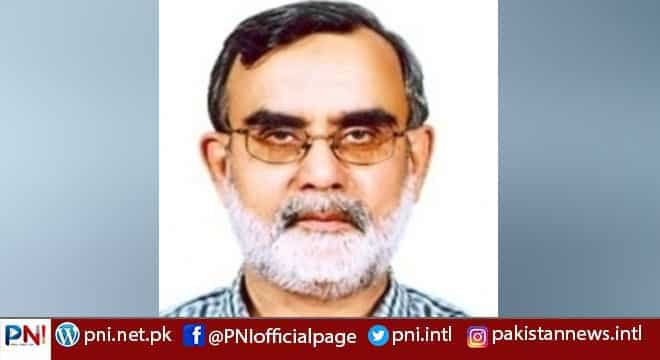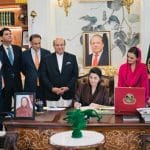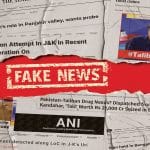We need to dig much deeper than the theories of corruption or conspiracies to deal with the current crisis in Pakistan. Pakistan’s crisis is created due to its specific path to modernity. The discourse of modernity in Pakistan is a combination of five unresolved conflicting tendencies in Pakistani society. During the course of modernization Muslim supporters of the Pakistan movement supported secular modernist political leadership, Islamist modernist political ideology, modernized tribal political culture, a predatory modernist business environment, and vibrant philanthropic practice. All these tendencies have a common thread, to synthesize tradition with modernity, but they are at loggerheads in charting the path to make the transition. Severe differences in making the transition to modernity have caused deep mistrust between various tendencies caused perpetually instability and led to promises for making shortcuts by various sections of the elite in the name of national honor, Islam, socialism, democracy, and the rule of law, and justice. The problem is that there are no shortcuts. We cannot have a free ride to progress and prosperity, and we cannot continue asking the poor to pay the debts accumulated by the rich. We need to start with one point agenda for national dialogue, the rich should pay their share of taxes or open the economy to foreign investments. The solution to our current crisis lies in building consensus on this one point. There is no American conspiracy, we have conspired against ourselves, and we are trying to blame it on ‘others’.
Political modernity in British India was led by Sir Syed Ahmad Khan, Mohammad Ali Jinnah, Mohammad Iqbal, and Muslim League’s leadership. Islamist modernist ideology was developed by Abul A’ala Maududi. The modernist tribal culture was shaped as a result of British policy to appoint local chiefs and give them the power to appoint their successors. Ironically the dynasty culture created by the British is blamed on ‘tribal’ tradition. The predatory economic system made inroads in Pakistan’s economy through the provision of generous foreign aid and the use of state power to promote ‘development without tears’. This policy was followed by all the governments in power, and it laid the foundation for extreme inequality, neglect of human development, and a high level of indebtedness. Poor people were made to pay through their noses by use of regressive taxation to repay the debts. The state abandoned its responsibility for human development and the poor arranged their own safety network by contributing to the philanthropic sector due to their inspiration from Sufi practices.
Proponents of these tendencies believe in modernity based on their religious faith and a religious understanding informed by modernity, but they can’t find the thread that connects their divergent views, and practices. Cracks emerging in the discourse of modernity are seen as the failure of the state by some and the failure of society by others but not as a crisis generated by modernity. It points to the need for identifying link of different modernist tendencies with individual and collective economic behavior in the form of two conflicting domains, the predatory and a solidarity economy of Pakistan. While secular modernism and Sufi culture contributed to the strengthening of solidarity economy, Islamist modernist ideology, tribal political cultures, and aid-based development all sided with the predatory economic practice. If we want to progress, we need to build a solidarity economy. The rich should pay their share of taxes, there should be no subsidies for business enterprises-even if they are established in the name of welfare, and we should open the economy to healthy foreign investments if our sick business units cannot compete. That is the only point of contention, the rest is shadow boxing.
One can witness the public sentiment-based wide presence of welfare activities in diverse forms in Pakistan as well as the state’s interventions to colonize welfare institutions, failure to perform well, introduce corruption in welfare work and deepen the level of mistrust with the civil society. This process seems to be in line with Mahmood Mamdani’s formulation that the state-building project is a reproduction of the colonization project in post-colonial Africa and South Asia. It points to the need for a deeper understanding of the ways in which the modern state influenced and was influenced by the Islamist political ideology, modern tribal culture, predatory economic policies, and delegated the role of helping the poor to vibrant philanthropy. Understanding these symbiotic relationships will help understand the paradoxical daily practices of people in Pakistan. We need to make a choice between political support for predatory politics and social support for solidarity with the poor.
As George Bernard Shaw beautifully put it “We have no more right to consume happiness without producing it than to consume wealth without producing it.” –
Follow the PNI Facebook page for the latest news and updates.









